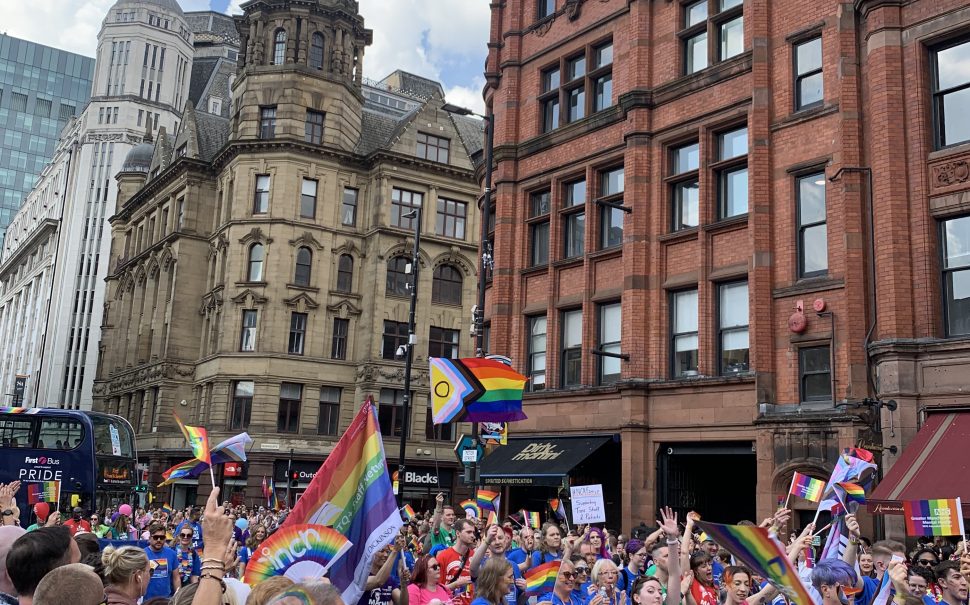An LGBT youth homelessness charity is seeing increased demand for its services because of the rising cost of housing – in Manchester most of all.
Akt (also known as the Albert Kennedy Trust) helps LGBTQ+ Mancunians find safe accommodation if they are experiencing homelessness or living in a dangerous environment.
Hayley Speed, Assistant Director of Services at akt, said: ‘The number of people coming to us for help initially is compounded by the cost of living crisis’
Nearly a quarter of young people at risk of homelessness in the UK identify as LGBTQ+ – compared to only 3.1% of the general population.
Akt runs services in London, Bristol, Newcastle as well as Manchester, where it is struggling the most to meet people’s needs.
Ms Speed added: ‘They’re all getting busier but in Manchester we’re at capacity. We see rough sleepers here which is less common in other areas.’

The rising cost of living means more people are facing homelessness in general – but LGBT+ people are at increased risk of homelessness because they are less likely to have family support.
They may also face discrimination in housing and employment – for example, trans and nonbinary people find it harder to navigate the benefits system because their ID might not match their chosen name.
The crisis is also making it harder for charities to afford the resources that people rely on.
Akt says that the average cost for its support packs, which fund emergency accommodation, has risen by 111% in the last year.
Specialist services like akt are in such high demand because marginalised groups – like LGBT people and people of colour – often have negative experiences with mainstream statutory services.
Over half of LGBTQ+ youth have faced some form of discrimination or harassment while accessing social services.
Ms Speed explained: ‘They’re not excluded by design but they’re not thought of. [The services’] target audience is that kind of heteronormative family.
‘Our young people will not go to statutory services because they’ve had bad experiences. There’s a lot to do at the local authority level with how they interact with LGBT young people.’
Featured image: Aisha Sembhi




